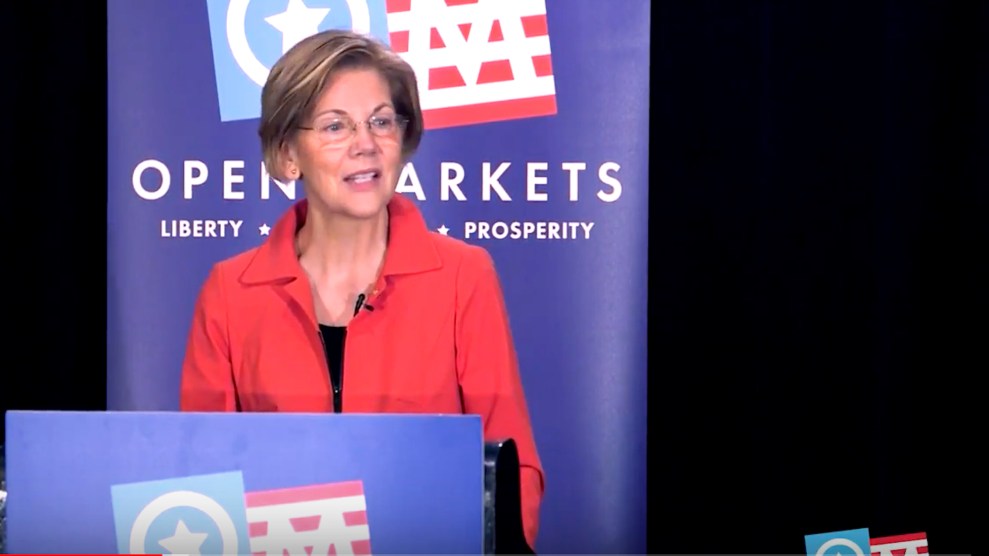
Sen. Elizabeth Warren speaks at the Open Market Institute.Screengrab/YouTube
Back in September 2016, US agribusiness titan Monsanto and German chemical conglomerate Bayer agreed to a $66 billion merger, making way for a globe-spanning firm with huge shares of the world’s seed and pesticide markets. The deal remains unconsummated, still under scrutiny by antitrust authorities. Donald Trump signaled readiness to bless the deal before taking office, but his administration has been pretty silent about it since.
Enter Trump’s nemesis, Sen. Elizabeth Warren (D.-Mass.). In a recent speech before the Open Markets Institute, Warren denounced rising levels of corporate consolidation—massive companies merging into vast market-dominating entities that invest a share of their profits in lobbying and financing campaigns, shaping the political system to their own ends.
At one point—snippet below—Warren turned her attention to one of the most consolidated sectors of the US economy: agribusiness. And she called on the Trump administration to nix Bayer-Monsanto. “If the Bayer-Monsanto merger is approved, one gigantic company would supply one-quarter of the entire world’s seeds and pesticides,” she noted. (Her math matches up pretty closely with my assessment).
“If the Bayer-Monsanto merger is approved, one gigantic company would supply one-quarter of the entire world’s seeds and pesticides.”
DOJ must #StopTheMerger pic.twitter.com/yLq4YKsJQE
— Friends of the Earth (@foe_us) December 12, 2017
As Warren notes, the Trump administration has already blessed a similar merger between former rivals Dow and DuPont, which will eventually roll out a seed/agrichemical giant bigger than Monsanto at its current size. It also signed off on the takeover of Swiss pesticide giant and ChemChina. If Monsanto/Bayer gets the green light as well, then just three corporations will own the lion’s share of the globe’s seed and pesticide markets, giving them enormous leverage over farmers world wide. And these companies’ aggressive push into “precision agriculture”—taking farmers’ field data and selling them advice on what to plant and spray—only adds to their power.
Warren can’t stop Trump from approving Bayer-Monsanto. But she seems intent to make sure everyone understands the consequences if he does.
















